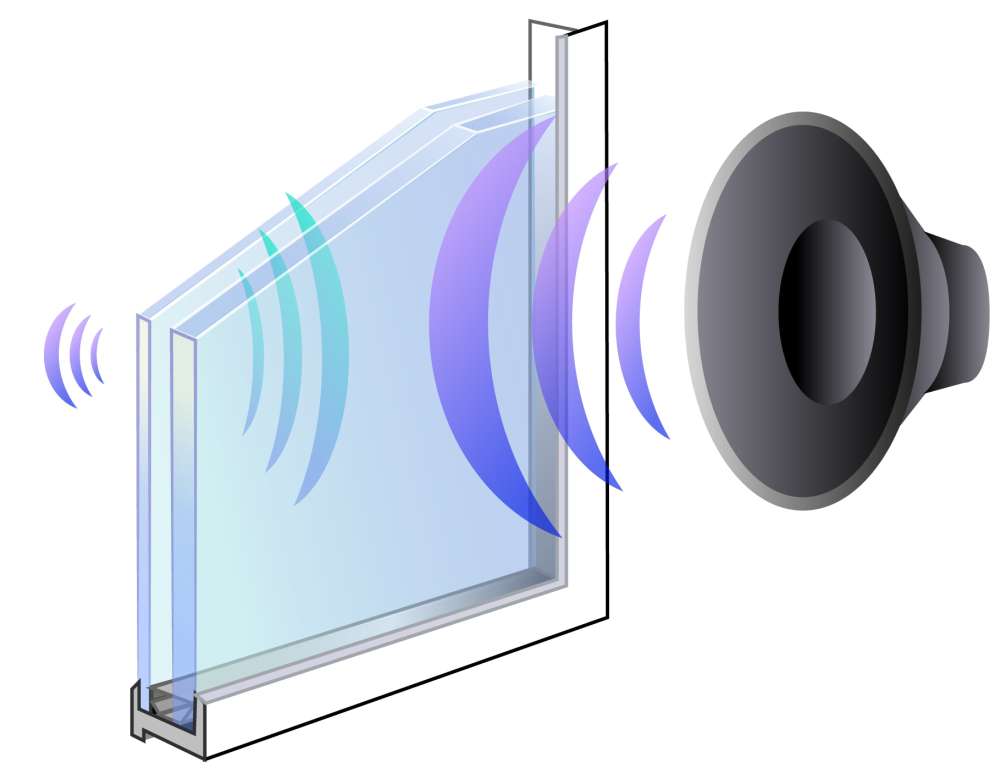Insulated glass units is the most commonly used glass in commercial and industrial structures. They have good thermal insulation and sound insulation properties and helps in energy conservation. There are many advantages and disadvantages of insulated glass unit which a homeowner should know before buying it. Here we give few advantages and disadvantages of insulated glass unit.

Insulated glass unit also known as insulated glazing unit (IGU) is made by two or more panes of glass separated by a cavity and the edges are sealed. Insulated glass unit made up of two panes is commonly used glass, so it is also called double glazed units or double glazed glass.
The advantages and disadvantages of insulated glass unit are as follows:
Advantages/Pros:
01. Energy Conservation:
Due to its thermal insulation property, the amount of heat coming in and going out from a room is reduced, when compared with single float glass. Thus energy is conserved as the temperature of the interior is maintained. Low e coating can be applied to one surface of the glass, for more energy conservation. Low e glass blocks most of the infrared radiations, so the heat coming to the building in summer, is reduced up to some extent.
02. Economy:
As the temperature is maintained, the costs of air conditioning and heating the interiors are reduced. For commercial structures, double glazed windows are very economical.
03. Sound Insulation:
As two panes of glass are there in insulated glass unit, they provide better sound insulation. This can be very beneficial in residential areas which are near crowded places such as markets, high traffic areas, etc. However, for full proof sound insulation, you need to design a double glazed unit according to either high frequency or low frequency sound or for both. For perfect sound insulation, the air gap between the glass panes must be increased. Normally air gap of 6 mm is provided in a double glazed unit, which can be increased to 12 mm or more according to the requirement for intense sound insulation.
Depending upon the sound frequency, the thickness of the glass has to be chosen. Generally, for preventing high-frequency sound, thicker glass is used. Thus outer glass of 12 mm thick plus given air gap plus inner glass of 6 mm thick is perhaps the ideal solution. But remember for sound proofing of a room, you need 100% air tight rooms which the insulated glass unit will not deliver.

04. Flexibility:
It is not necessary that the glass panes in the insulated glass unit must be float glass. Various types of glass such as tinted glass, toughened glass, laminated glass, heat strengthened glass, reflective glass, ceramic printed glass, patterned glass etc. can be assembled to make insulated glass unit as per the requirements. Also for more desired thermal insulation, triple glazed unit can be used which has three panes of glass separated by air filled cavities. The air gap can be filled by stable gases such as Argon, Xenon and Krypton, which provide better thermal insulation too.
05. Safety:
Double glazed windows are considered safer against theft or burglary, as compared to single glass. As the unit is tightly sealed, it is difficult to break it from outside.
06. Protection to Furnishing:
As sunlight does not enter directly into the room, the furnishings such as sofas, curtains, carpets, and other fabrics are protected from sunrays. This prevents fading of furnishing due to direct sunlight.
Disadvantages/Cons:
01. Cannot be Repaired:
Double glazed units if broken or damaged cannot be repaired. You have to replace the broken unit with new unit.
02. Traps Heat:
As it traps heat inside and does not let it escape, insulated glass unit are beneficial in winter. But in the summer of a tropical country, this trapped heat may lead to overheating of interiors. This leads to an uncomfortable environment and increases the cost of air conditioning.
03. High Initial Cost:
Insulated glass unit has high initial cost as compared to monolithic glass.
Insulated glass unit has high initial cost but in the long run it is economical and helps in energy conservation. Owning to it advantages, insulated glass unit have been used in many renowned structures such as Burj Khalifa, China’s National Centre for Performing Arts, Helsinki Central Library, The Bow building, etc. From the above mentioned advantages and disadvantages of insulated glass unit, the user has to make a judicious choice.
